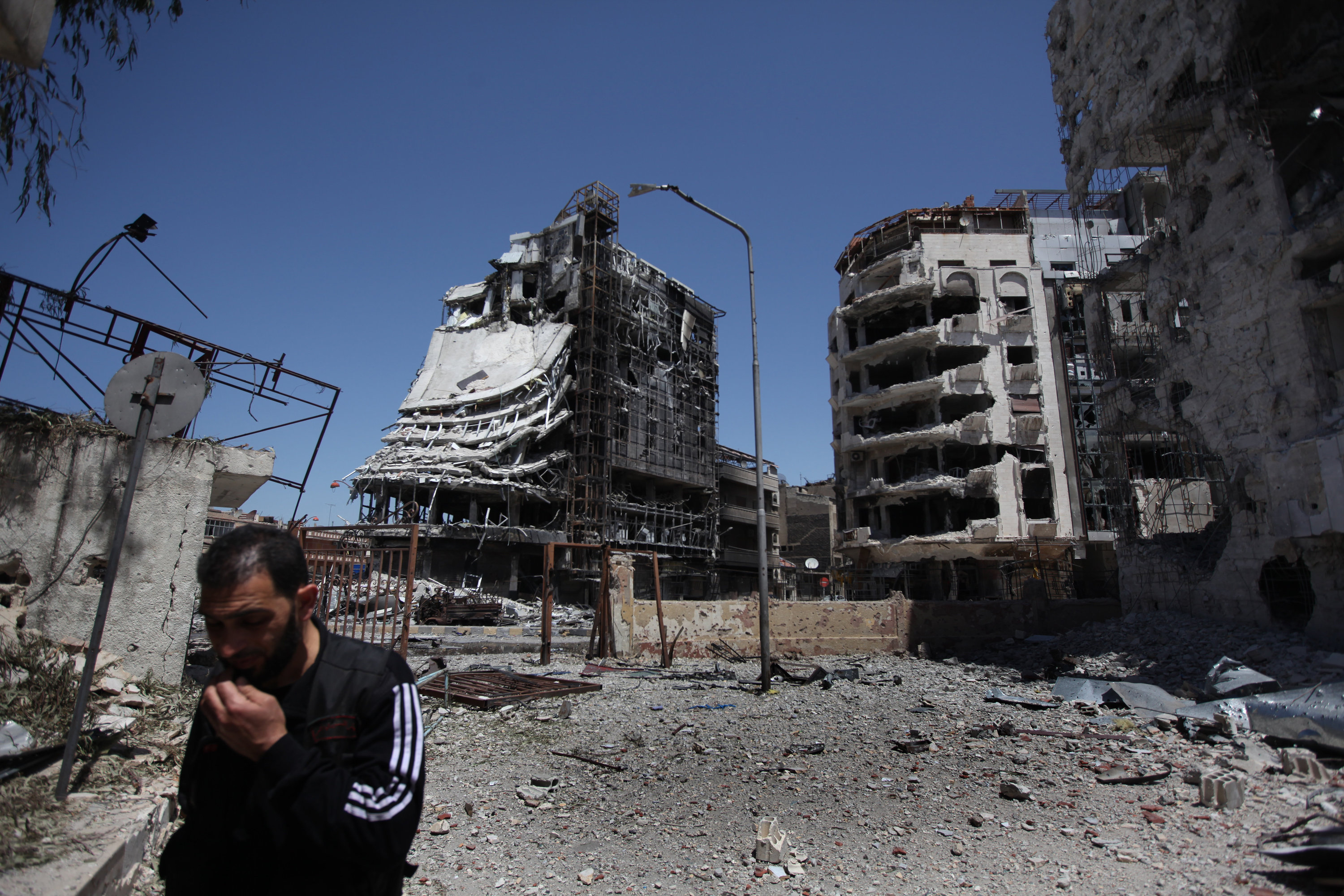MOSCOW, August 16 – RAPSI, Ingrid Burke. The United Nations Human Rights Council [UNHRC] declared Wednesday that forces loyal to the governing regime of Bashar Al-Assad have, in the context of the present Syrian conflict, committed crimes against humanity, war crimes, and gross violations of international humanitarian law.
According to the report, which provides ample and graphic detail of the alleged atrocities, forces loyal to the regime are believed to have committed “the crimes against humanity of murder and of torture, war crimes and gross violations of international human rights law and international humanitarian law, including unlawful killing, torture, arbitrary arrest and detention, sexual violence, indiscriminate attack, pillaging and destruction of property.” The report further confirms that these violations were committed in accordance with state policy, thus placing responsibility for their commission squarely on the shoulders of the regime.
The failure of international diplomacy
Particularly notable as the violence and bloodshed gained momentum in Syria were the repeated and public failures of the international community to establish a viable diplomatic solution to the crisis. The crux of the failure of the permanent UNSC members to see eye to eye on a solution was a fundamental disagreement with regard to the balancing of interests between domestic sovereignty and international justice. Specifically, members were unable to agree on whether the Syrian conflict had escalated to the point of invoking the international community’s responsibility to protect.
In this context, the UNHRC’s determination that “the intensity and duration of the conflict, combined with the increased organizational capabilities of anti-Government armed groups, had met the legal threshold for a non-international armed conflict” is crucial in that it may give rise to a new role and a new set of responsibilities on behalf of the international community in general, and the UNSC in particular, in Syria. It is on the basis of this finding that the committee opted to analyze the conflict under international humanitarian and human rights law.
Atrocities at the hands of regime and loyalist forces
As mentioned above, the report places a heavy burden of responsibility for the widespread atrocities that have defined the conflict on the Assad regime and forces loyal to it. The investigative commission’s conclusion that the atrocities were state orchestrated is based on the similar modus operandi employed in large-scale attacks around the country, as well as the complexity and integrated military-security apparatus present throughout. According to the report, these factors indicate “the involvement at the highest levels of the armed and security forces and the Government.”
According to the commission, most unlawful killings occurred during the course of attacks on opposition strongholds. Such strongholds were generally blockaded and then shelled. Afterward, ground troops consisting of special forces would secure the targeted area, and then conduct door-to-door searches. At that point, “Defectors, activists and fighting-age men were systematically sought out during these operations. Wounded or captured anti-Government fighters were executed. In some cases, family members of fighters, defectors and activists, as well as others who appeared to have been randomly selected, were also executed.” According to the report, this precise pattern was repeated broadly throughout the country. The commission noted that in each town within which this pattern was carried out, regime and loyalist forces satisfied the elements of a widespread or systematic attack on a predominantly civilian population.
Houla Massacre
The commission conducted a special investigation into the now-infamous Houla massacre, which left upwards of 100 dead, including dozens of women and children.
The Syrian government blamed opposition forces for the brutal attack. The UN Commission, however, reported that the government’s account was unsubstantiated. The report places blame for the atrocity in the hands of the government, concluding that, “The killing of multiple civilians, including women and children, was deliberate and connected to the ongoing armed conflict.”
Casualties
According to government forces, as of July 9, 2012, 7,928 lives had been lost as a result of the conflict in total. Other sources, including Syrian NGOs, place the number between 17,000 and 22,000. The commission was unable to confirm either set of figures.
Atrocities at the hands of opposition forces
The commission made clear its belief that war crimes have been committed, albeit on a smaller scale, by opposition forces as well, stating: “The violations and abuses committed by anti-Government armed groups did not reach the gravity, frequency and scale of those committed by Government forces.” The commission urged that although the opposition forces are not bound by the Geneva Convention, it is necessary that they adhere to international humanitarian law.
Notably, the Commission concluded that, “information on executions perpetrated by anti-Government armed groups - with or without a ‘trial’ - constituted reasonable grounds to believe that the war crimes of murder or of sentencing or execution without due process had been committed on several occasions.”
Atrocities other than unlawful killing
The commission further provided detailed accounts of the following crimes against humanity, war crimes, and gross violations of international humanitarian and human rights law: arbitrary detention and enforced disappearance; torture and other forms of ill-treatment; indiscriminate attacks; sexual violence; the violation of children’s rights; and the pillaging and destruction of property. When possible, responsibility was ascribed for each such violation.
Looking forward
The commission reported that it has compiled a confidential list of individuals and forces believed to be responsible for the atrocities at issue, and that the list will be submitted to the UN High Commissioner for Human Rights next month. In closing, the report urged the imperative of negotiating a settlement that will lead to “a political transition that reflects the legitimate aspirations of all segments of Syrian society, including ethnic and religious minorities.”
With regard to the role of the international community, the commission urged the imperative that the UNSC permanent members must work together to apply pressure to both sides of the conflict in order to end the violence and strive toward a sustainable political transition. How the UNSC will interpret its role in light of these new findings remains to be seen.



